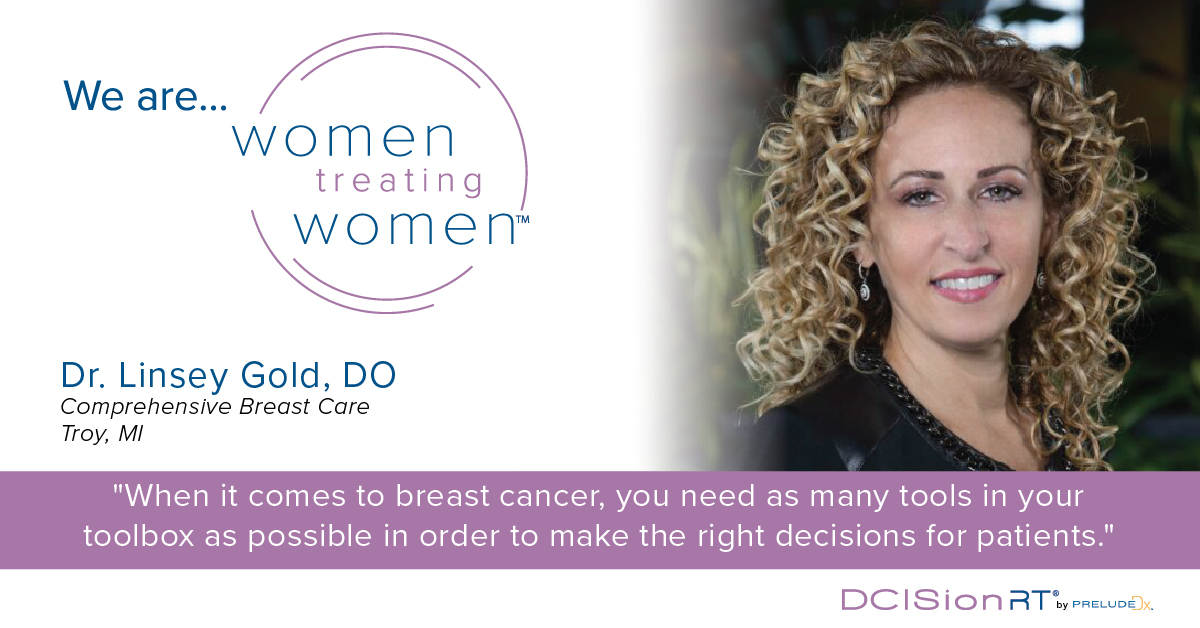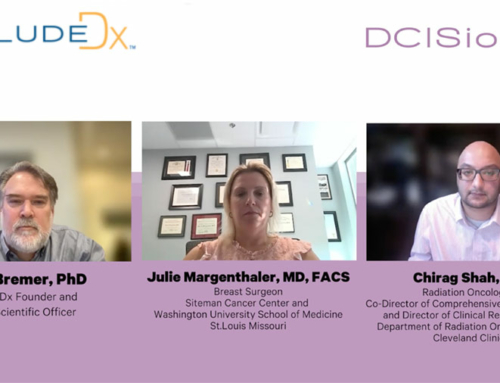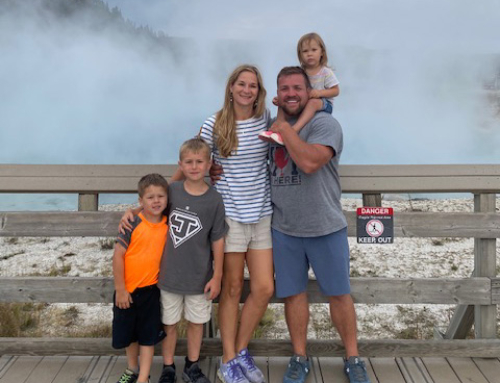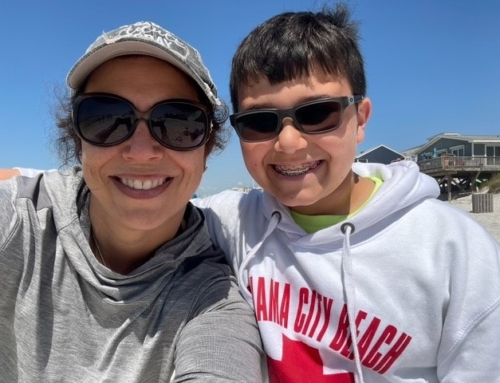For Comprehensive Breast Care’s Dr. Linsey Gold, treating breast cancer is like making a really, really important bird house. Okay, so maybe those weren’t her exact words, but the idea is similar.
“The name of the game in oncology these days is all about what tools you have in your toolbox and what people you have in your shop,” she says. “For anyone making treatment decisions in relation to a cancer diagnosis, it’s of the utmost importance to have as many tools in the toolbox as early as possible so you can help the patient make the best decisions for her(him)self.”
The most pivotal tool she utilizes in her toolbox these days is precision medicine. And specifically, when treating DCIS breast cancer, she relies on DCISionRT for each and every one of her patients.
“Just as important as your toolbox, is your team,” she says. “Science has provided us all with great advancements, but I’m beyond lucky to work with physicians in other specialties who genuinely value their patients trust in them.”
The breast surgeon out of Troy, Michigan is both everything and nothing you would expect out of a world-class oncologist and much more. She is direct but warm, focused but light, and manages to both raise and ground a room with her intellect at the same time. More than anything, she has always insisted on treating each and every patient as she would her own family… even if it means rocking some boats.
“I have the pleasure of working with radiation oncologist, Dr. Frank Vicini, but prior to that, I often felt the need to hold my peers accountable,” she says. “DCISionRT has forced some of our colleagues at tumor boards to really pay attention to the results and answer hard questions about their treatment recommendations.
It’s occasionally been a little awkward, but that, she says, is the true beauty of the multidisciplinary approach.
“The joke is that if you go to a surgeon, we’ll operate on you. If you go to a medical oncologist, they’ll give you drugs. And if you go to a radiation oncologist, they’re going to radiate you. That’s our nature,” she says. “If the only tool you have is a hammer, then everything’s a nail. Hence the importance of having tools like DCISionRT that force us to second-guess both ourselves and others and be intentional with our decisions rather than knee-jerk reactive.”
In addition to arming herself with as much data and information as possible when entering those conversations, she makes sure to do the exact same with her patients so that amid the chaos that is a new cancer diagnosis, they too can advocate for themselves.
“I always, always, always print out extra copies of the DCISionRT results and physically hand them to my patient,” she says. “We walk through each word step-by-step so that when they walk into their other appointments, they’re equipped with exactly what questions to ask.”
How the patients themselves initially receive those results, however, is sometimes more personality driven than biologically driven.
“In all my years in this industry, you realize that some people are so risk-averse that they would never play even a dollar scratch off, and others get their paycheck on Friday and run to 7/11,” she says.
Some of her patients come in determined to get radiation because they subscribe to the same viewpoint that the American medical industry in general does: “better safe than sorry.” On the other hand, some come in determined not to get treatment for their own various prerogatives.
And the purpose of giving them their DCISionRT results is not at all to change their minds, but rather to show them precisely what they’d be signing up for with whichever path they choose, especially given the recent data showing the unreliability of traditional clinical pathology alone.
“It’s no surprise to me whatsoever that the recent data says 42% of the time, there’s a change in physicians’ treatment recommendation after DCISionRT because that’s exactly what it feels like,” she says. “Truly in about every other patient, I pull up their results and just think ‘What? Really?’”
She calls it a humbling reminder that even with years of experience and training, she and her multidisciplinary colleagues really just have no clue which patients need treatment, and which don’t without precision medicine. So as long as it continues evolving to promote improved patient care, she’ll continue supporting it… and encouraging everyone else to do the same.






